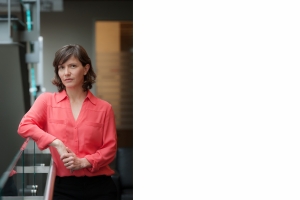
The Allard Law History Project sat down with Tamara Levy, QC in the summer of 2020: listen to the full interview. Since then, under her leadership, the UBC Innocence Project continues to work on the exoneration of the wrongfully convicted. On November 12, 2020, they had their first successful exoneration: Tomas Yebes was acquitted after a double-murder conviction in 1983 based on invalid expert evidence. In another Project case, Gerald Klassen received bail in early December 2020 while he awaits a decision from the Minister of Justice.
It was at a small legal clinic near downtown Toronto that Tamara Levy, then a law student at Osgoode Hall, discovered her interest in criminal law.
More than a decade and a cross-country move home later, Levy uncovered her passion for investigating claims of wrongful conviction and miscarriages of justice. She worked at Crown Counsel's Victoria office and at a law firm before beginning to teach at UBC in 2004. Through teaching topics such as advanced evidence, she started learning about wrongful convictions and the Innocence Project. She co-founded the UBC Innocence Project in 2007, and has served as the program’s director for more than a decade.
“Working with the project gives us the opportunity at UBC to raise public awareness about the unique challenges in Canada. We’re the only Innocence Project west of Ontario and one of only four in Canada that’s affiliated with a law school, so I think we have a very unique opportunity at UBC that you won’t get at many law schools across the country,” Levy said, adding that many students who have gone through the program have called it the most meaningful experience they had in law school.
“It’s a wonderful learning opportunity for the students and one in which they gain really important skills that they can take with them whether they’re going into criminal law or other areas of the law.”
Since then, Levy has co-founded the Criminal Defence Advocacy Society (CDAS), a network of lawyers that advocates for legal reform in criminal law and provides support and mentorship for young counsel in the field.
“CDAS has done some great work over the last five years and we’re really excited to see what we can do going forward,” she said.
Levy has also been involved with the Trial Lawyers Association of BC, the Canadian Bar Association BC Branch, and the Continuing Legal Education Society of BC in a variety of speaker and conference chair roles. Her accomplishments were recognized with the Queen’s Counsel designation in 2017.
Citing former Chief Justice Beverley McLachlin, Levy said criminal law remains a human endeavour in which mistakes, however infrequent, are bound to happen. This is what motivates her to keep working in the field.
“Generally, once people go to prison they just want to do their time and get out. They admit their guilt and they move forward. But, on rare occasions, people maintain their innocence, and fight for the truth to come to light and continue fighting sometimes when they get out of prison,” she said. “I’ll be satisfied as long as I feel that we have done everything we can to get to the truth in those cases.”